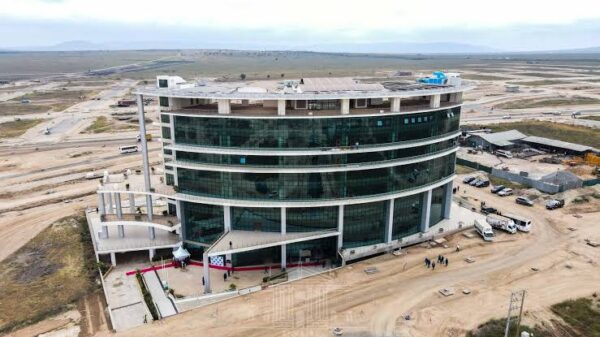VIENNA, October 23 – OPEC hardliners stepped up pressure on Thursday for a controversial oil production cut at an emergency meeting of the cartel on Friday to decide how to shore up prices while the world heads into a recession.
Iran\’s oil minister Gholam Hossein Nozari highlighted the split within the group over the collapse in price when he called for a two-million-barrel a day production cut as he arrived in Vienna late on Wednesday.
"Two million will stabilise" the market, Gholam Hossein Nozari told reporters and Libya, Venezuela and Qatar have also called in recent days for a cut by the Organization of Petroleum Exporting Countries.
But Western leaders oppose such a move, with British Prime Minister Gordon Brown saying any reduction would be "scandalous". And Gulf states led by Saudi Arabia are expected to oppose any major production cuts, analysts said.
Kuwait\’s Oil Minister Mohammad al-Olaim said OPEC must take the global financial crisis into account when deciding its action.
"There is a surplus in the market… and sooner or later action should be taken anyway," Olaim told reporters on Thursday before departing for Vienna. "(But) we are concerned about the financial crisis going on and I think any action should take into consideration the financial crisis."
Analysts expect the cartel to decide on a reduction of at least one million barrels per day.
OPEC president Chakib Khelil, the Algerian energy minister, said late on Wednesday that the cartel, already suffering from the financial crisis, to be further hit by "very low" oil prices.
But he said the group had to weigh the impact of a prospective decision to cut oil output on both consumers and producers.
OPEC produces 40 percent of the world\’s oil and its official output quota stands at 28.8 million barrels per day.
Iran is the second largest OPEC exporter and its economy is heavily dependent on oil and gas income. Saudi Arabia is the world\’s biggest crude exporter.
Oil futures on Wednesday tumbled to 16-month lows under 65 dollars a barrel, mainly on news that demand is slumping in the United States.
They recovered on Thursday on bargain-hunting, with Brent North Sea crude up 96 cents at 65.48 dollars a barrel in London. New York\’s light sweet crude rose 99 cents to 67.74 dollars.
But prices are down about 56 percent from a record high of 147.5 dollars in July.
The Vienna meeting on the impact of the global financial crisis and looming recession on the oil market was originally planned for November 18 but was brought forward as prices plunged.
Khelil said on Wednesday that crude stocks are "very high."
He added: "There is an excess of supply and some of us are not able to sell the crude. I think the question of reduction has to be discussed" on Friday.
Khelil also said that non-OPEC oil producers should consider cutting output. Russia is the largest non-OPEC oil producer.
On Wednesday, Russian President Dmitry Medvedev told the cartel\’s secretary general Abdalla Salem El-Badri he wanted closer cooperation.
British Prime Minister Gordon Brown said last week that it was "absolutely scandalous" that OPEC members were considering cutting production "so they can push up the price of oil" in times of economic turmoil.
El-Badri hit back on Tuesday, insisting that OPEC had no responsibility to keep production high and oil prices low to ease pain in the West caused by the credit crunch.
OPEC comprises 12 members: Algeria, Angola, Ecuador, Iran, Iraq, Kuwait, Libya, Nigeria, Qatar, Saudi Arabia, the United Arab Emirates and Venezuela. A thirteenth, Indonesia, has suspended membership.
Indonesia officially leaves the cartel at the end of 2008, while Iraq does not have an output quota because of the post-war strife there.


































